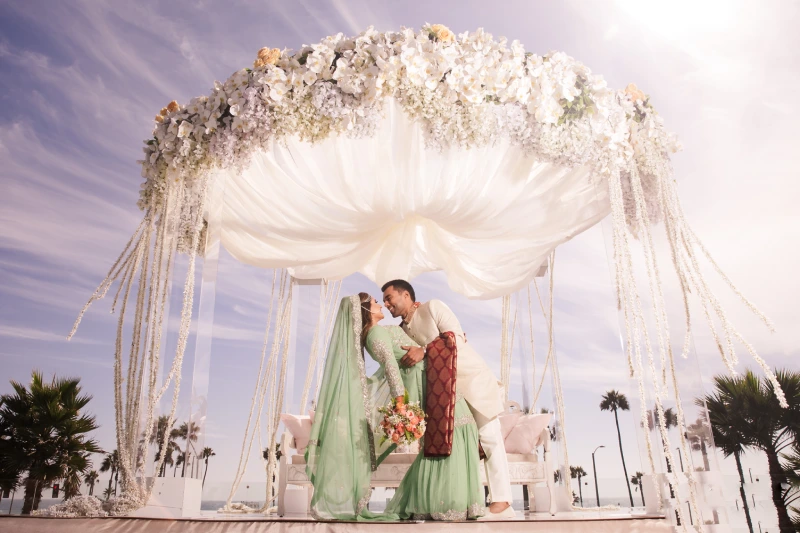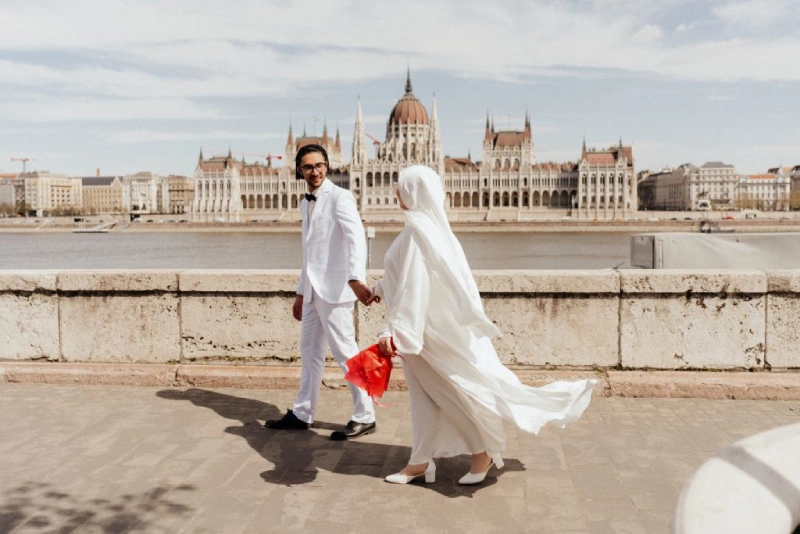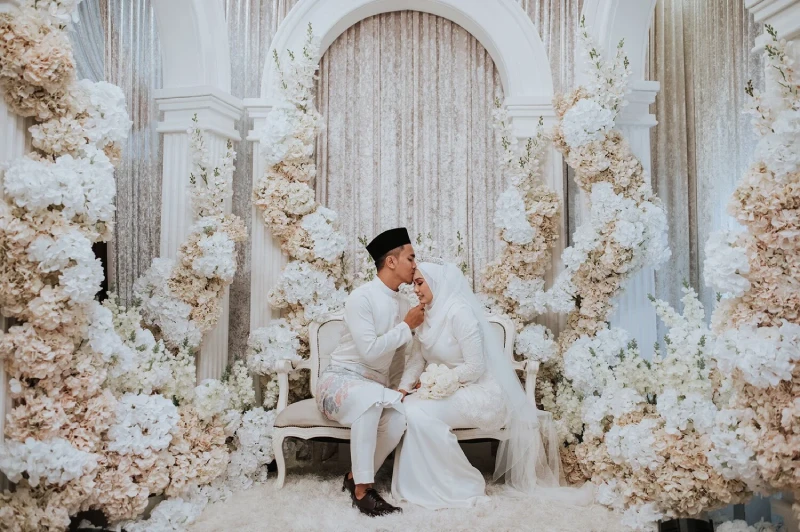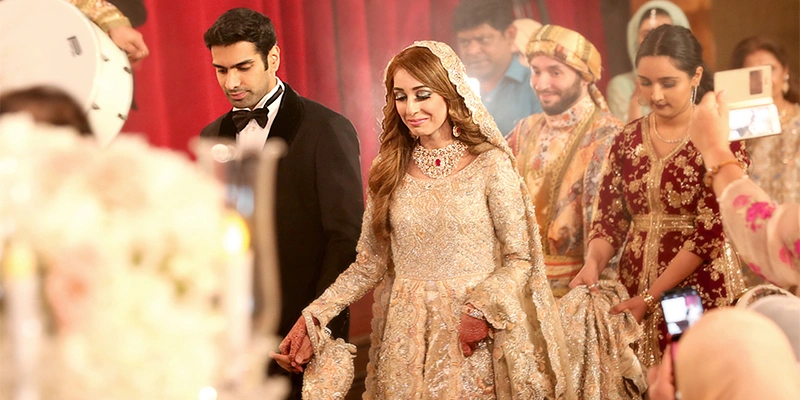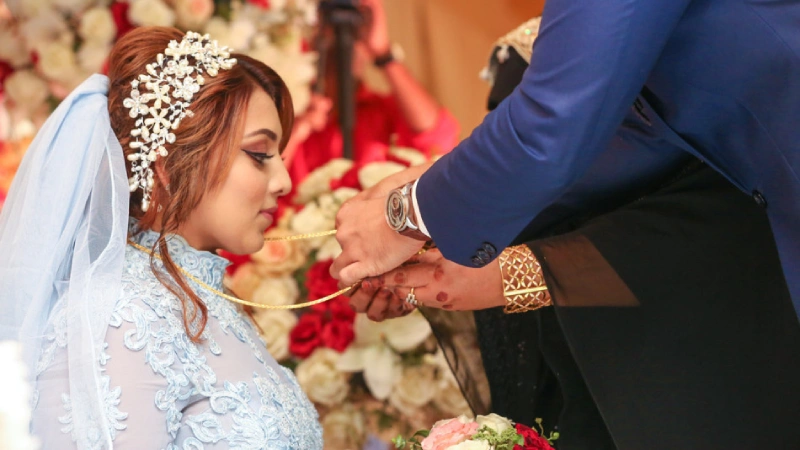Planning a Muslim destination wedding? You’re in for a heartfelt journey filled with rich traditions, breathtaking locations, and unforgettable moments. Whether you envision an intimate ceremony on a sun-kissed beach or a lavish celebration in a historic palace, the world is your oyster. A Muslim destination wedding not only embraces cultural significance but also creates a unique backdrop that tells your love story in the most picturesque way. As you navigate through sacred rituals and contemporary trends, you’ll discover that each detail—from the attire to the cuisine—can reflect both your heritage and personal flair. Join us as we explore essential tips and inspiring ideas to ensure your special day is a perfect blend of faith, tradition, and romance, making it a celebration that you and your guests will cherish forever. Get ready to embark on a planning adventure that honors your roots while making lasting memories in a dream setting!
Muslim Destination Wedding
Planning a Muslim destination wedding? You’re in for a heartfelt journey filled with rich traditions, breathtaking locations, and unforgettable moments. Whether you envision an intimate ceremony on a sun-kissed beach or a lavish celebration in a historic palace, the world is your oyster. A Muslim destination wedding not only embraces cultural significance but also creates a unique backdrop that tells your love story in the most picturesque way. As you navigate through sacred rituals and contemporary trends, you’ll discover that each detail—from the attire to the cuisine—can reflect both your heritage and personal flair. Join us as we explore essential tips and inspiring ideas to ensure your special day is a perfect blend of faith, tradition, and romance, making it a celebration that you and your guests will cherish forever. Get ready to embark on a planning adventure that honors your roots while making lasting memories in a dream setting!
Understanding Muslim Destination Weddings
A Muslim destination wedding is a celebration that combines the rich cultural heritage of Islam with the allure of a chosen location far from home. It allows couples to incorporate their faith and traditions into their wedding while creating a memorable experience for themselves and their guests. These weddings often take place in exotic locations, offering the perfect blend of adventure and intimacy. The key to planning a successful Muslim destination wedding lies in understanding the cultural and religious aspects that need to be honored.
Muslim weddings are deeply rooted in religious practices and cultural customs that vary across different regions. It is essential to respect these traditions while planning a wedding away from home. This means ensuring that the ceremony and reception adhere to Islamic guidelines and practices, such as incorporating prayers and Quranic recitations. Additionally, the wedding should be inclusive and considerate of guests’ needs, providing prayer spaces and halal food options.
The beauty of a destination wedding is that it allows couples to create a unique experience that reflects their personal tastes and preferences. Whether it’s a beachfront ceremony in the Maldives or a grand celebration in Istanbul, the destination adds a special touch to the wedding. It provides an opportunity to explore new cultures and create lasting memories with loved ones. By carefully planning and incorporating both cultural and personal elements, couples can ensure that their Muslim destination wedding is a truly unforgettable event.
Popular Destinations for Muslim Weddings
Choosing the perfect location for a Muslim destination wedding is crucial, as it sets the tone for the entire celebration. There are several destinations around the world that cater to Muslim weddings, offering beautiful venues, halal catering, and cultural experiences. Some popular choices include Morocco, Turkey, Malaysia, and the United Arab Emirates.
Morocco is a top choice for couples seeking an exotic and culturally rich destination. With its stunning landscapes, historic architecture, and vibrant markets, Morocco provides a magical backdrop for a wedding. Cities like Marrakech and Fez offer luxurious riads and palaces that can be transformed into dream wedding venues. The country’s rich history and culture add an extra layer of depth to the celebration, making it an unforgettable experience for all.
Turkey is another favored destination for Muslim weddings, known for its breathtaking scenery and rich cultural heritage. Istanbul, with its iconic landmarks and beautiful Bosphorus views, offers a perfect setting for a wedding. Couples can choose from opulent hotels, historic palaces, and charming boutique venues. The blend of Eastern and Western influences in Turkey creates a unique atmosphere that is both romantic and culturally significant.
Malaysia provides a tropical paradise for couples looking to celebrate their love. With its pristine beaches, lush rainforests, and vibrant cities, Malaysia offers a diverse range of venues for a wedding. The country’s multicultural environment ensures that Islamic traditions and customs are respected, making it an ideal location for a Muslim destination wedding. From intimate beach ceremonies to grand hotel receptions, Malaysia has something to offer every couple.
Cultural Considerations in Muslim Weddings
When planning a Muslim destination wedding, cultural considerations play a crucial role in ensuring that the celebration is respectful and meaningful. Understanding and honoring Islamic traditions and customs is essential, as they form the foundation of the wedding ceremony and reception. This involves incorporating religious elements, such as prayers and Quranic recitations, as well as cultural practices that vary across different regions.
One important aspect of a Muslim wedding is the Nikah ceremony, which is the formal marriage contract between the bride and groom. This ceremony is typically conducted by an Islamic scholar or Imam and involves the recitation of Quranic verses and prayers. It is essential to ensure that the Nikah ceremony is conducted according to Islamic guidelines, regardless of the destination. This may involve arranging for an Imam to travel to the wedding location or finding a local scholar who can perform the ceremony.
Another cultural consideration is the inclusion of traditional attire and customs specific to the couple’s heritage. Muslim weddings often feature elaborate dress codes, with brides wearing beautifully embroidered gowns and grooms donning traditional attire. It is important to incorporate these elements into the wedding to honor the couple’s cultural background. Additionally, customs such as the Mehndi ceremony, where the bride’s hands are adorned with intricate henna designs, should be included to add cultural significance to the celebration.
Legal Requirements for Destination Weddings
Navigating the legal requirements for a destination wedding can be challenging, but it is a crucial aspect of ensuring that the marriage is recognized both locally and internationally. Each country has its own set of regulations and procedures for conducting weddings, and it is essential to understand and comply with these requirements to avoid any legal complications. This involves obtaining the necessary documentation, meeting residency requirements, and ensuring that the marriage is legally binding.
One of the first steps in planning a destination wedding is to research the legal requirements of the chosen location. This includes understanding the paperwork needed for the marriage license, such as birth certificates, passports, and divorce decrees if applicable. Some countries may also require couples to undergo health checks or provide proof of residency. It is important to gather all necessary documents well in advance to avoid any last-minute issues.
In addition to obtaining a marriage license, couples may need to fulfill residency requirements, which can vary depending on the destination. Some countries require couples to be residents for a certain period before they can legally marry. This may involve arriving at the destination a few days or weeks before the wedding to meet the necessary requirements. It is essential to plan accordingly to ensure that all legal aspects are covered.
Finally, it is important to ensure that the marriage is legally recognized both in the destination country and in the couple’s home country. This may involve registering the marriage with local authorities and obtaining an official marriage certificate. Couples should also check if their home country requires any additional documentation for the marriage to be recognized. By carefully navigating the legal requirements, couples can ensure that their destination wedding is both beautiful and legally binding.
Wedding Traditions and Rituals in Muslim Culture
Muslim weddings are rich in traditions and rituals that vary across different cultures and regions. These customs add depth and meaning to the celebration, creating a memorable experience for the couple and their guests. Understanding and incorporating these traditions into a destination wedding is essential to honor the couple’s heritage and create a culturally significant event.
One of the key rituals in a Muslim wedding is the Nikah ceremony, which is the formal marriage contract between the bride and groom. This ceremony is conducted by an Islamic scholar or Imam and involves the recitation of Quranic verses and prayers. It is a sacred and significant part of the wedding, symbolizing the couple’s commitment to each other and their faith. The Nikah ceremony can be customized to include personal vows and readings, making it a unique and meaningful experience.
Another important tradition in Muslim weddings is the Mehndi ceremony, where the bride’s hands and feet are adorned with intricate henna designs. This ceremony usually takes place a day before the wedding and is a joyful and festive occasion. The Mehndi ceremony is often accompanied by music, dancing, and traditional foods, creating a vibrant and celebratory atmosphere. It is a beautiful way to honor cultural traditions and add a touch of elegance to the wedding.
Muslim weddings also feature a variety of customs and rituals that vary across different regions. For example, in South Asian Muslim weddings, the bride and groom may exchange garlands during the wedding ceremony, symbolizing their acceptance of each other. In Arab Muslim weddings, the couple may participate in a traditional sword dance, known as the Ardha, to celebrate their union. These customs add a unique and personal touch to the wedding, making it a truly memorable event.
Choosing the Right Venue for a Muslim Wedding
Selecting the perfect venue for a Muslim destination wedding is a crucial step in the planning process. The venue sets the tone for the entire celebration and provides the backdrop for the couple’s special day. When choosing a venue, it is important to consider factors such as location, capacity, facilities, and cultural significance. This ensures that the venue not only meets the couple’s preferences but also accommodates their religious and cultural needs.
One of the key considerations when choosing a venue is its location. The venue should be easily accessible for the couple and their guests, with convenient transportation options and nearby accommodations. It is also important to consider the climate and weather conditions of the destination, as this can impact the overall experience. For example, a beachfront venue may be ideal for a summer wedding, while a historic palace may be more suitable for a winter celebration.
Another important factor is the capacity and facilities of the venue. The venue should be able to accommodate the number of guests comfortably, with ample space for the ceremony, reception, and other events. It is also essential to ensure that the venue has the necessary facilities to meet the couple’s religious and cultural needs, such as prayer spaces and halal catering options. Additionally, the venue should provide services and amenities that enhance the overall experience, such as event planning assistance, audiovisual equipment, and decorative options.
The cultural significance of the venue is also an important consideration. The venue should reflect the couple’s heritage and provide a meaningful backdrop for their wedding. This may involve choosing a venue with historical or cultural significance, such as a traditional riad in Morocco or a historic palace in Istanbul. By selecting a venue that resonates with their cultural background, couples can create a wedding that is both beautiful and culturally significant.
Catering and Cuisine for Muslim Weddings
Catering and cuisine play a crucial role in a Muslim destination wedding, as they reflect the couple’s cultural heritage and provide a memorable experience for the guests. When planning the menu, it is important to consider factors such as dietary restrictions, cultural preferences, and the availability of halal options. This ensures that the food not only meets the couple’s tastes but also adheres to Islamic guidelines.
Halal catering is a key consideration in a Muslim wedding, as it ensures that the food is prepared according to Islamic dietary laws. This involves sourcing halal meat and ingredients, as well as ensuring that the food is cooked and served in a halal manner. It is important to work with a caterer who understands and respects these guidelines, providing a menu that is both delicious and compliant with Islamic principles.
In addition to halal catering, it is important to incorporate cultural preferences into the menu. This may involve including traditional dishes from the couple’s heritage, such as biryani, kebabs, and baklava. These dishes not only add a touch of cultural significance to the wedding but also provide a unique and flavorful experience for the guests. Additionally, it is important to consider the dietary preferences of the guests, providing vegetarian, vegan, and gluten-free options as needed.
The presentation and service of the food are also important aspects of the catering experience. The food should be beautifully presented, with attention to detail and aesthetic appeal. It is also essential to provide excellent service, with professional and courteous staff who ensure that the guests are well taken care of. By carefully planning the catering and cuisine, couples can create a memorable and enjoyable dining experience for their wedding.
Attire and Fashion for Muslim Destination Weddings
Attire and fashion are significant aspects of a Muslim destination wedding, as they reflect the couple’s cultural heritage and personal style. When selecting wedding attire, it is important to consider factors such as tradition, comfort, and the destination’s climate. This ensures that the attire not only looks beautiful but also meets the couple’s cultural and practical needs.
Traditional attire is a key consideration in a Muslim wedding, as it honors the couple’s heritage and adds cultural significance to the celebration. Brides often wear beautifully embroidered gowns, known as lehengas or abayas, while grooms don traditional attire such as sherwanis or thobes. These outfits are often adorned with intricate designs, embroidery, and embellishments, creating a stunning and elegant look. It is important to select attire that reflects the couple’s cultural background and personal preferences, creating a unique and meaningful experience.
Comfort is another important factor when selecting wedding attire. The attire should be comfortable to wear, allowing the couple to move freely and enjoy their special day. This is especially important for destination weddings, where the climate and weather conditions can impact the overall experience. For example, lightweight and breathable fabrics may be ideal for a beachfront wedding, while heavier and warmer materials may be more suitable for a winter celebration.
The destination’s climate is also an important consideration when selecting wedding attire. The attire should be appropriate for the weather conditions, ensuring that the couple is comfortable throughout the celebration. This may involve choosing outfits that are suitable for hot and humid climates, such as lightweight and airy fabrics, or selecting attire that provides warmth and protection in colder conditions. By carefully selecting attire that meets both cultural and practical needs, couples can create a beautiful and comfortable wedding experience.
Planning Tips for a Successful Muslim Destination Wedding
Planning a Muslim destination wedding requires careful consideration and attention to detail to ensure that the celebration is beautiful, meaningful, and enjoyable for all. There are several tips and strategies that couples can use to navigate the planning process and create a successful wedding experience. These include setting a clear vision, working with local vendors, and incorporating cultural elements.
Setting a clear vision is the first step in planning a successful destination wedding. This involves defining the couple’s preferences, priorities, and goals for the wedding. It is important to create a detailed plan that outlines all aspects of the celebration, including the ceremony, reception, attire, catering, and entertainment. By setting a clear vision, couples can ensure that all elements of the wedding are aligned and create a cohesive and memorable experience.
Working with local vendors is another important strategy for planning a destination wedding. Local vendors have a deep understanding of the destination and can provide valuable insights and services to enhance the wedding experience. This includes working with local planners, caterers, photographers, and florists who can provide expertise and support throughout the planning process. It is important to establish clear communication and build strong relationships with local vendors to ensure that all aspects of the wedding are well-coordinated.
Incorporating cultural elements is essential to creating a meaningful and authentic wedding experience. This involves honoring the couple’s heritage and traditions, such as including religious rituals, traditional attire, and cultural customs. It is important to research and understand the cultural practices that are significant to the couple and incorporate them into the wedding. By embracing cultural elements, couples can create a wedding that is both beautiful and culturally significant.
Conclusion: Celebrating Love Across Borders
A Muslim destination wedding is a beautiful and meaningful celebration that combines cultural heritage with the allure of a chosen location. By carefully planning and incorporating religious, cultural, and personal elements, couples can create a wedding that is both memorable and significant. From understanding the traditions and rituals to choosing the perfect venue and catering, every detail contributes to a successful and enjoyable wedding experience.
Celebrating love across borders allows couples to create lasting memories in a dream setting, surrounded by loved ones. It provides an opportunity to explore new cultures, honor heritage, and create a unique and personal wedding experience. By navigating the planning process with care and attention to detail, couples can ensure that their Muslim destination wedding is a perfect blend of faith, tradition, and romance.
As you embark on the journey of planning a Muslim destination wedding, remember to embrace the cultural significance and personal flair that make your celebration unique. With careful planning and thoughtful consideration, you can create a wedding that you and your guests will cherish forever. Get ready to celebrate love across borders and create unforgettable memories in a beautiful destination.

